Calling all nations
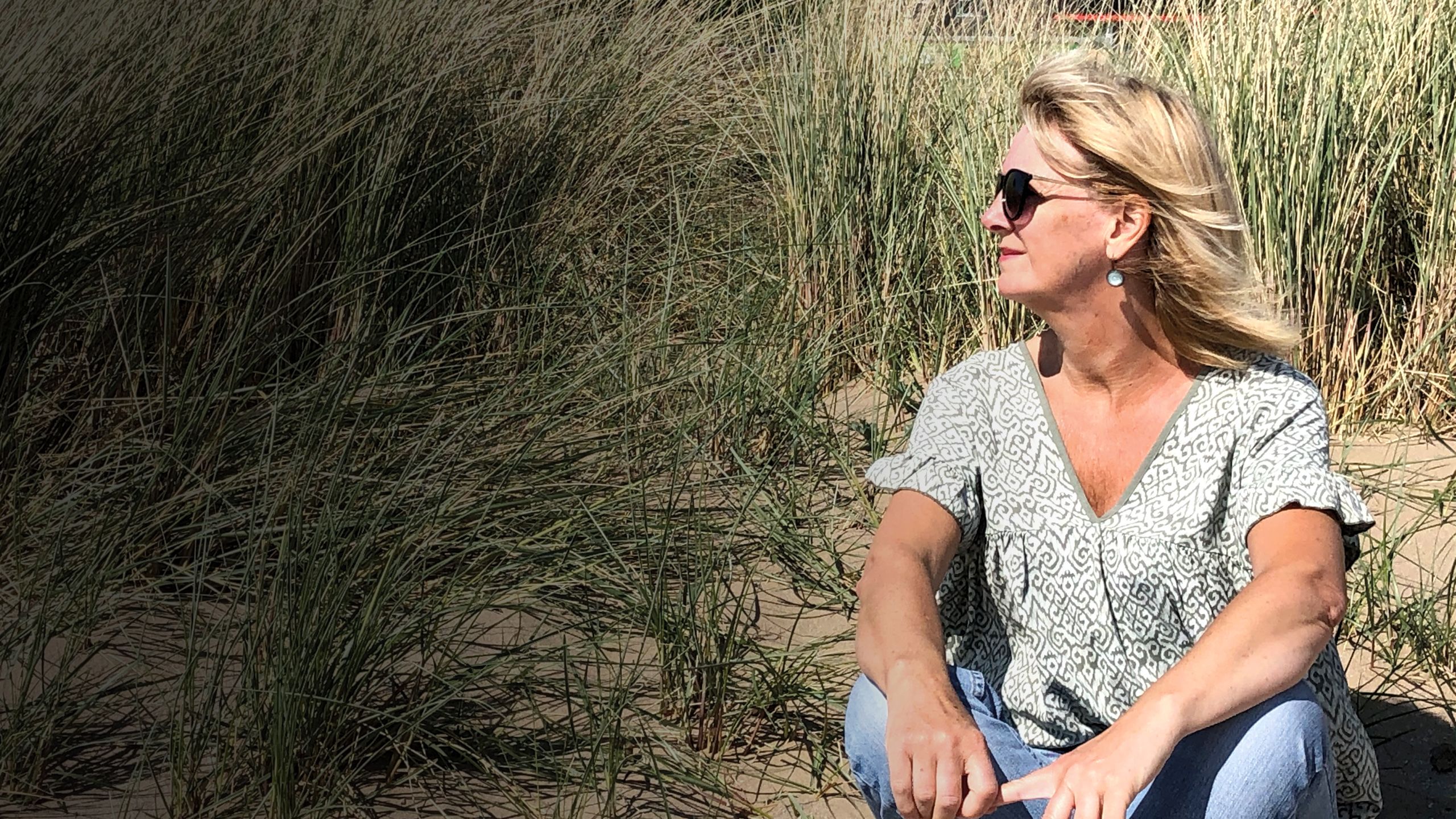
Calling all nations
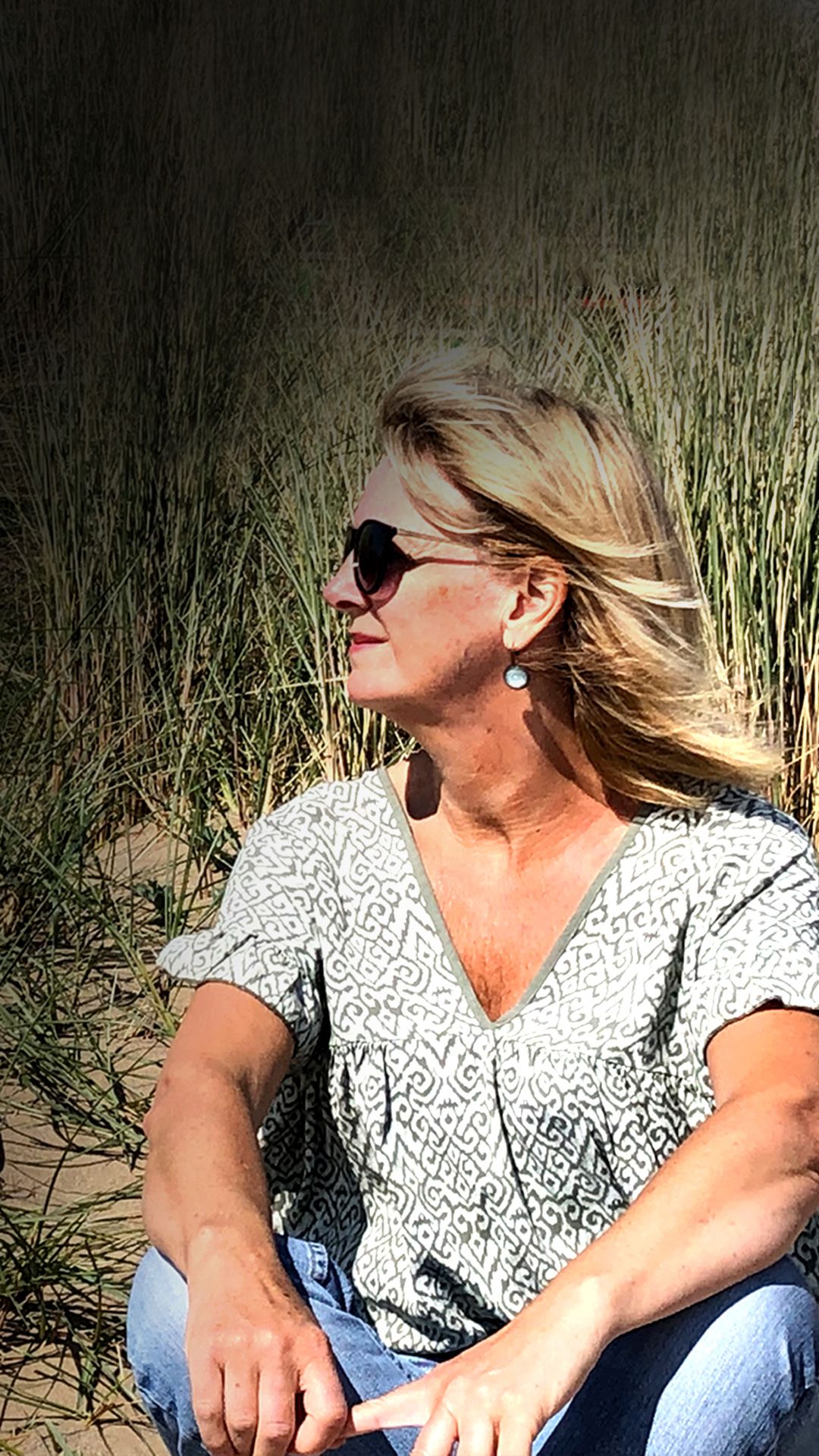
Leadership Focus journalist Nic Paton speaks to newly appointed NAHT president Ruth Davies about her priorities in office.
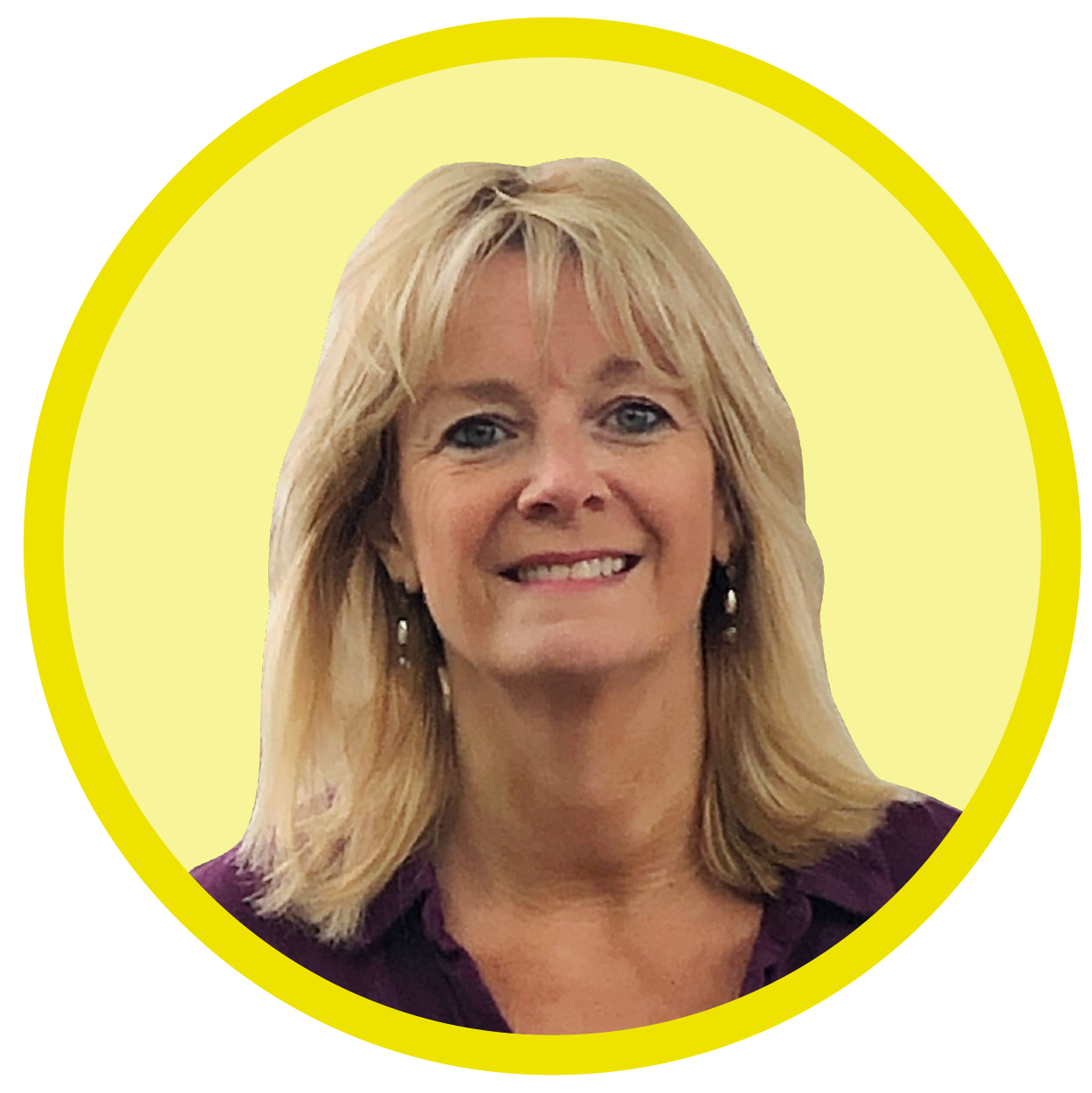
RUTH DAVIES,
NAHT PRESIDENT
“Well it’s all very weird times, isn’t it?” laughs new NAHT president Ruth Davies, with a singular degree of understatement. We are speaking at the end of April, just days before NAHT’s Annual Conference should have taken place (from 7 to 10 May 2020) at Cardiff City Hall and where Ruth, as NAHT Cymru president, would have stepped up to begin her year as national president, taking over from Judy Shaw.
The coronavirus (covid-19) pandemic put paid to all that of course; although, the weeks of lockdown that brought the school year to a crunching halt in March have at least enabled Ruth, a keen walker, to indulge her love of the landscapes of the Gower Peninsula.
Head teacher of Waunarlwydd Primary School in Swansea since 2004, Ruth has been a committed NAHT member and passionate advocate for Welsh education and NAHT in Wales for more than a decade and a half, having been NAHT Cymru president from 2013 to 2014 as well as last year.
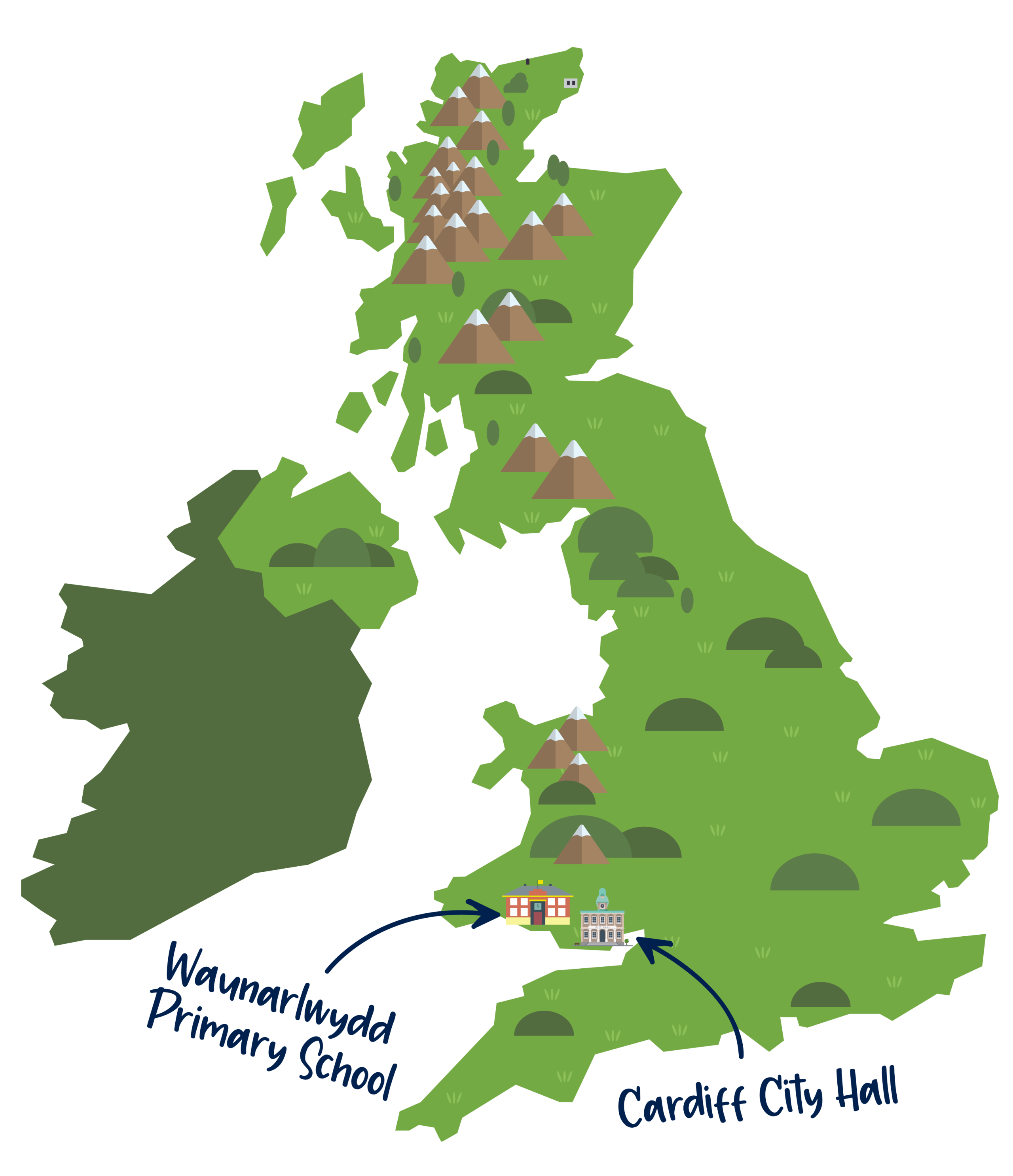
Yet, while her tenure as national president is certainly an opportunity to promote the voice of Wales in NAHT, Ruth is at pains to emphasise that her presidency will be about much more than being an advocate for one country. In fact, quite the opposite.
“It has never been my intention to make my presidency solely about Wales – even though, as a president from the nation, Wales will naturally have a raised profile over the coming year,” she tells Leadership Focus.
“Rather, I feel, it is about celebrating the three nations that make up our truly national organisation. Small though we are, without Wales and Northern Ireland, you can lose the ‘N’ – for ‘national’ – out of NAHT and that broader, more balanced national perspective.

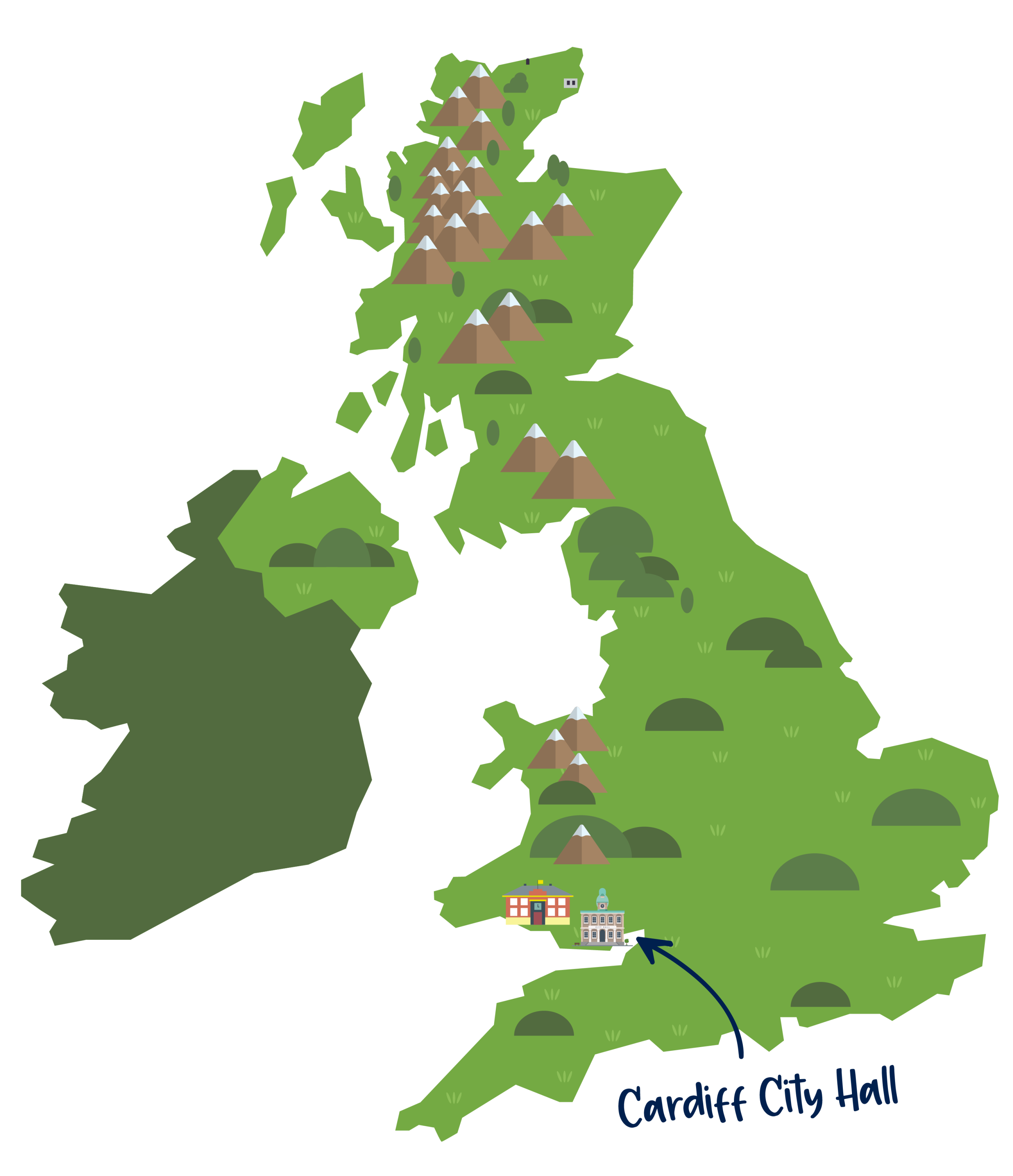

“I feel, ultimately, our aims and endeavours as school leaders are and should be the same, wherever we are. My desire in Wales has always been to collaboratively build strong, inclusive schools that are committed to excellence and well-being for all. Well, that is not far from what any head teacher in England or Northern Ireland would want to achieve,” she adds.
The year Ruth had anticipated as national president has been somewhat upended by the pandemic. Nevertheless, some of the themes she was looking to articulate at conference remain relevant; in fact, some are arguably becoming even more relevant post-pandemic.
Take, for example, her desire to focus on how schools and school leaders can be a catalyst for building what she terms ‘compassionate communities’, with Diversity Role Models being her chosen charity for her year as national president.
“For those who aren’t aware of its great work, Diversity Role Models seeks to embed and promote inclusion and empathy in the next generation,” Ruth explains. “It is about creating safe spaces where young people can explore differences and feel accepted. And its student workshops allow young people to speak about and understand their and other people’s lived experiences as well as the impact of things such as language on diversity and inclusion. So, it is very much a wonderful charity for our times.
“Similarly, I am passionate about the need for us all to be building compassionate, diverse communities and the role of school leaders as leaders of compassionate communities; how school leaders can build, promote and encourage that capacity for diversity and inclusion in their communities,” Ruth adds.


“I feel, ultimately, our aims and endeavours as school leaders are and should be the same, wherever we are. My desire in Wales has always been to collaboratively build strong, inclusive schools that are committed to excellence and well-being for all. Well, that is not far from what any head teacher in England or Northern Ireland would want to achieve,” she adds.
The year Ruth had anticipated as national president has been somewhat upended by the pandemic. Nevertheless, some of the themes she was looking to articulate at conference remain relevant; in fact, some are arguably becoming even more relevant post-pandemic.
Take, for example, her desire to focus on how schools and school leaders can be a catalyst for building what she terms ‘compassionate communities’, with Diversity Role Models being her chosen charity for her year as national president.
“For those who aren’t aware of its great work, Diversity Role Models seeks to embed and promote inclusion and empathy in the next generation,” Ruth explains. “It is about creating safe spaces where young people can explore differences and feel accepted. And its student workshops allow young people to speak about and understand their and other people’s lived experiences as well as the impact of things such as language on diversity and inclusion. So, it is very much a wonderful charity for our times.
“Similarly, I am passionate about the need for us all to be building compassionate, diverse communities and the role of school leaders as leaders of compassionate communities; how school leaders can build, promote and encourage that capacity for diversity and inclusion in their communities,” Ruth adds.
Where this resonates in the context of the pandemic is how the weeks of lockdown have served to illustrate the pivotal role school leaders can play in terms of supporting the most vulnerable families and children in their communities; the importance of school leaders recognising they have a vital community role as well as an educational or just school leadership role. As Ruth agrees: “The pandemic has, I feel, changed us all as a society.”
Another important strand and focus of Ruth’s presidency will be the need for effective, but also appropriate, accountability and assessment systems. This, again, is a discussion gaining urgency in the context of the post-lockdown rebuilding challenges that school leaders will face from the autumn.
“In Wales, NAHT has long pushed for responsible scrutiny and accountability in our inspection service, and as a result, we have had an opportunity over the last 12 months to input into Estyn’s self-evaluation of its role and function. We have had the opportunity to make a real difference, not just in terms of reacting to what is happening now but also in terms of proactively laying down a strong pathway forward and for generations of leaders to come up behind me,” Ruth points out.
“We need to lose the ‘blame culture’ around accountability. To my mind, some of the best teaching and learning takes place when learners feel free to take risks and make mistakes, to learn from them and improve, and to think creatively outside of the box. The most productive learning pathways for me have proved to be ones that moved thinking away from the idea of ‘low-risk; high-blame’ environments to ‘high-risk; low-blame’ ones. I believe that in England, Wales and Northern Ireland over the past few decades, we have been driven more and more towards a blame culture where we become scapegoats for all of society’s ills.
“Yet, the very best leaders get to be leaders because they are creative thinkers.
"I think a blame culture with narrow accountability systems threatens the very qualities that we would want to see cherished within a school leader, especially in the current challenging times we all now face."It is not about reducing accountability or standards; it is about reducing the blame culture that discourages risk-taking and creative thinking and, as a result, hinders successful leadership.

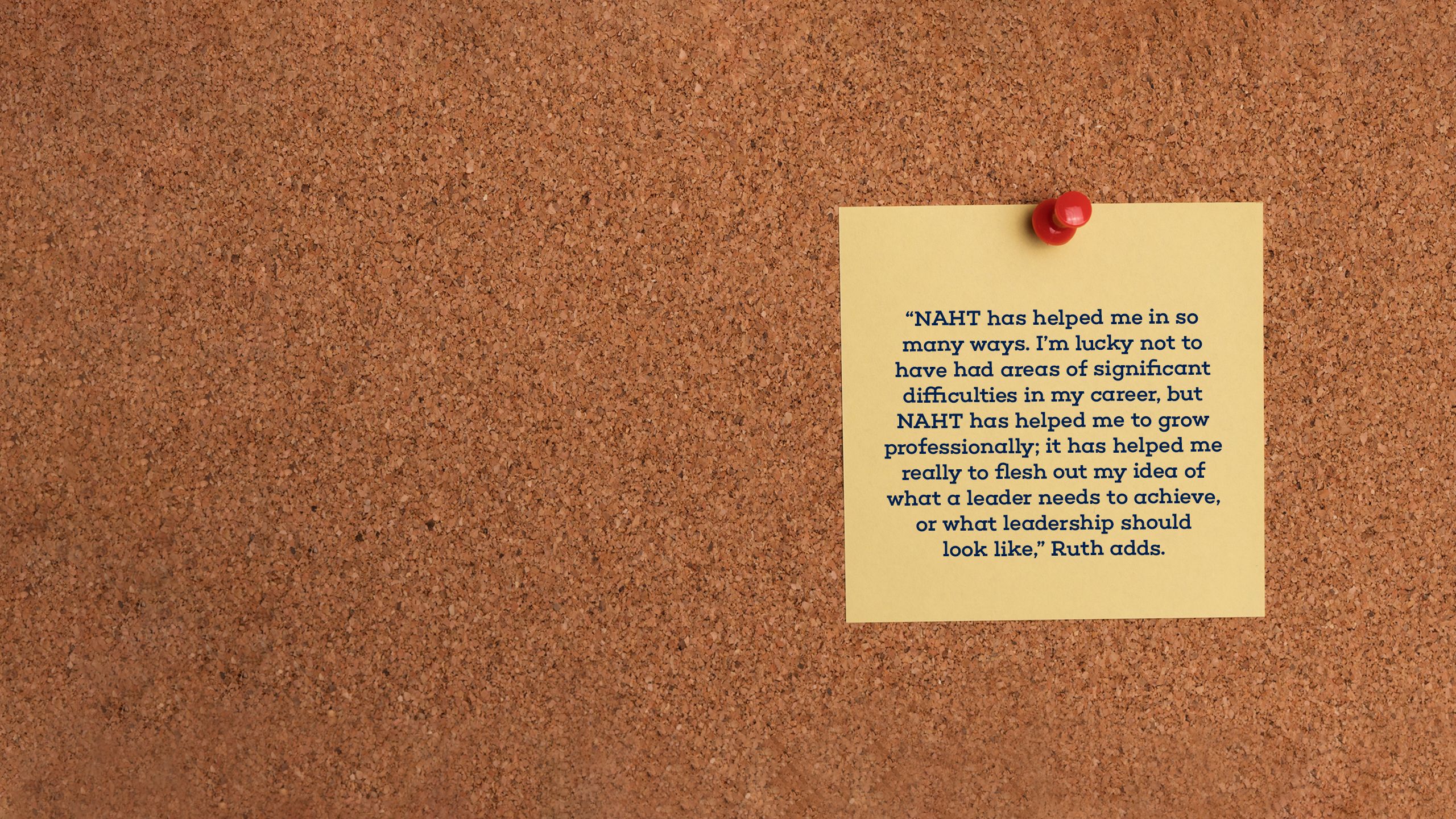
Where this resonates in the context of the pandemic is how the weeks of lockdown have served to illustrate the pivotal role school leaders can play in terms of supporting the most vulnerable families and children in their communities; the importance of school leaders recognising they have a vital community role as well as an educational or just school leadership role. As Ruth agrees: “The pandemic has, I feel, changed us all as a society.”
Another important strand and focus of Ruth’s presidency will be the need for effective, but also appropriate, accountability and assessment systems. This, again, is a discussion gaining urgency in the context of the post-lockdown rebuilding challenges that school leaders will face from the autumn.
“In Wales, NAHT has long pushed for responsible scrutiny and accountability in our inspection service, and as a result, we have had an opportunity over the last 12 months to input into Estyn’s self-evaluation of its role and function. We have had the opportunity to make a real difference, not just in terms of reacting to what is happening now but also in terms of proactively laying down a strong pathway forward and for generations of leaders to come up behind me,” Ruth points out.
“We need to lose the ‘blame culture’ around accountability. To my mind, some of the best teaching and learning takes place when learners feel free to take risks and make mistakes, to learn from them and improve, and to think creatively outside of the box. The most productive learning pathways for me have proved to be ones that moved thinking away from the idea of ‘low-risk; high-blame’ environments to ‘high-risk; low-blame’ ones. I believe that in England, Wales and Northern Ireland over the past few decades, we have been driven more and more towards a blame culture where we become scapegoats for all of society’s ills.
“Yet, the very best leaders get to be leaders because they are creative thinkers.
"I think a blame culture with narrow accountability systems threatens the very qualities that we would want to see cherished within a school leader, especially in the current challenging times we all now face."It is not about reducing accountability or standards; it is about reducing the blame culture that discourages risk-taking and creative thinking and, as a result, hinders successful leadership.
“More importantly, it has helped me to flesh out how that occurs successfully in school relationships. I genuinely believe schools are unique organisations because they are people driven; they are not driven by frameworks or reports or data. Frameworks, reports and data undoubtedly have an important part to play, but these don’t ultimately drive our schools; relationships do.
"That is what generates, nurtures and sustains ‘success’. You can have as many reports or as much data as you like, but if the relationships are not right, you’re not productive, and you’re not generating confidence, shared ownership or the capacity to grow. Being a people-centred organisation and thinking through how those relationships really best work – at all levels – are I believe absolutely core,” Ruth says.
“Therefore, whatever the day-to-day challenges we will all be facing post-pandemic – and I accept there will be many – for me, time and time again, ‘success’ comes back to the absolute centrality of getting relationships right. Getting relationships right – not only adults with children and children with adults but also adults with adults – as a profession is critical.
“In my experience, the most productive settings are those where achieving the right relationships result in high levels of mutual trust and respect. The ambitious pursuit of standards then naturally follows. For too long, we’ve been subjected to low-risk, high-accountability structures. Such structures can inhibit the very creativity that we crave and know to be a consistent feature for the most successful leaders.
“A culture that instead embraces risk-taking, which seeks to combine high risk with more responsible accountability frameworks – ones that are mutually owned – is, I believe, the most productive. And all of this is dependent on having the right sort of relationships in place first.
“If we are to craft a profession that attracts the very best – and by that, I mean emotionally intelligent as well as professionally able leaders – we have to go back to the basics of how we build and sustain relationships at all levels. We need to have confidence, not only in our abilities but also our experiences. And we need to recognise that at the heart of successful schools and successful schooling are bold, creative risk-takers who take very seriously that ‘once in a lifetime chance’ of each learner.
“Relationships matter. They always did, but they were never as important as they are right now. To that end, building compassionate communities is, for me, not a ‘soft’ measure. For me, it is the measure from which everything else stems,” says Ruth.

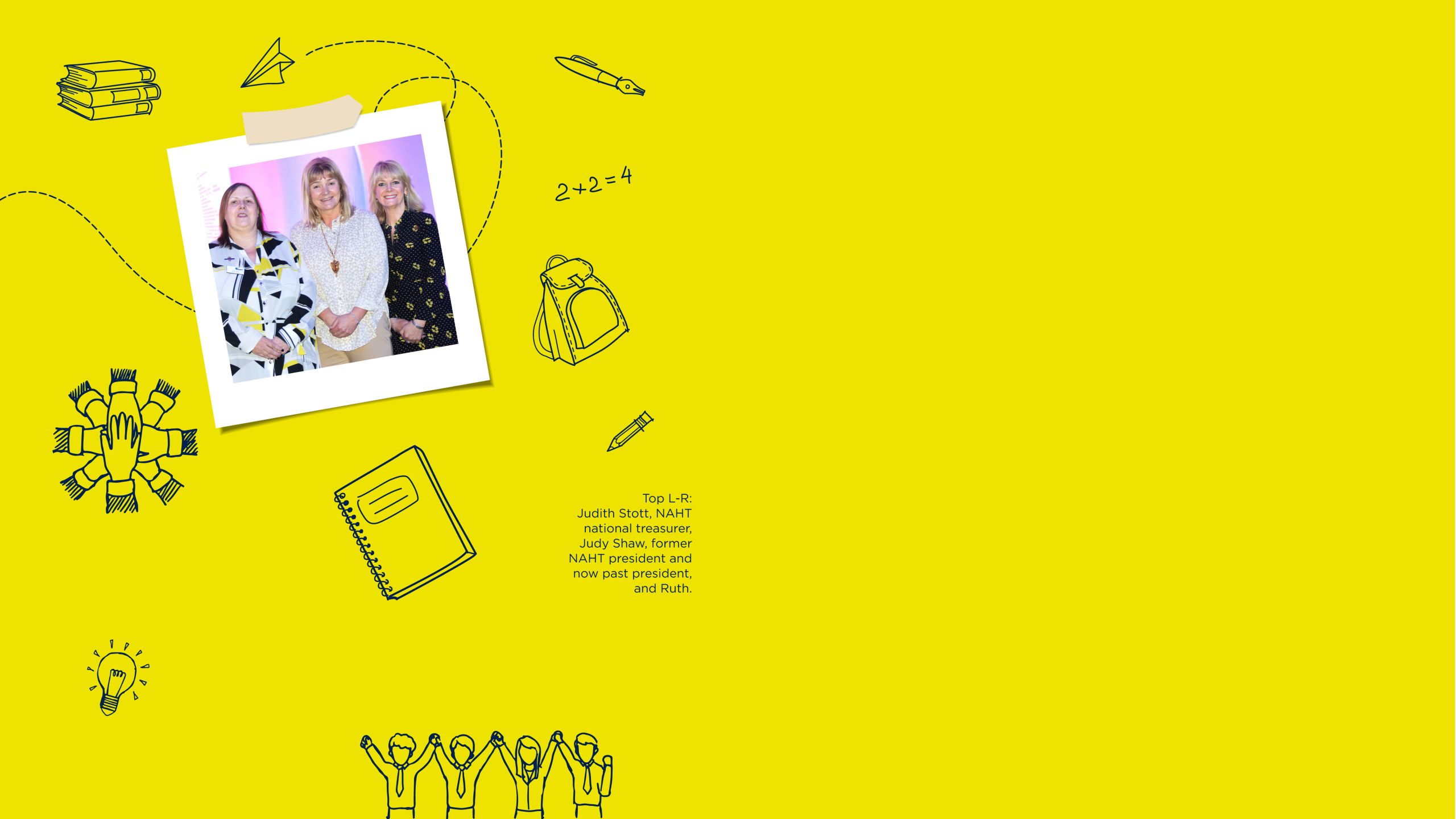
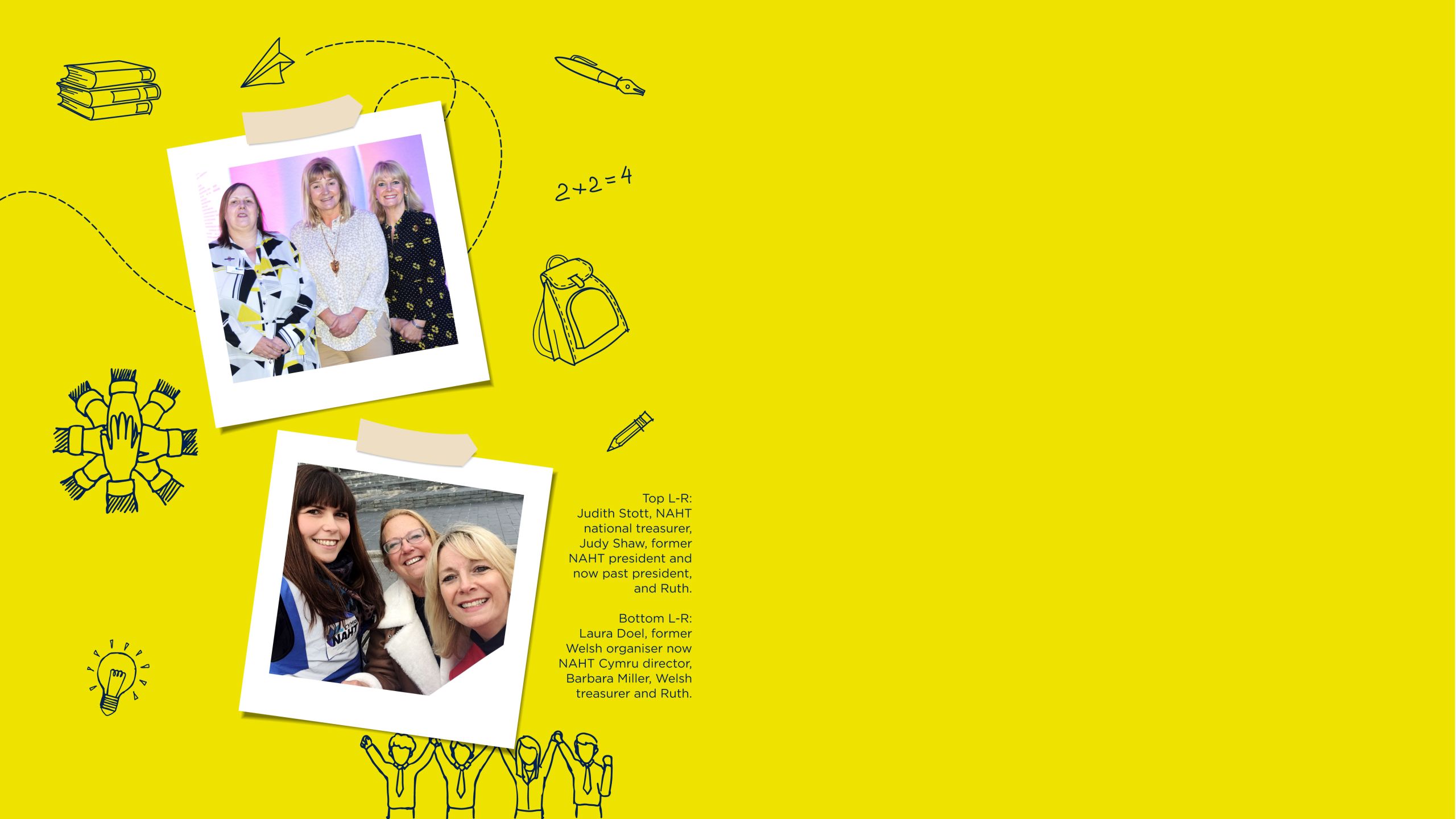
“More importantly, it has helped me to flesh out how that occurs successfully in school relationships. I genuinely believe schools are unique organisations because they are people driven; they are not driven by frameworks or reports or data. Frameworks, reports and data undoubtedly have an important part to play, but these don’t ultimately drive our schools; relationships do.
"That is what generates, nurtures and sustains ‘success’. You can have as many reports or as much data as you like, but if the relationships are not right, you’re not productive, and you’re not generating confidence, shared ownership or the capacity to grow. Being a people-centred organisation and thinking through how those relationships really best work – at all levels – are I believe absolutely core,” Ruth says.
“Therefore, whatever the day-to-day challenges we will all be facing post-pandemic – and I accept there will be many – for me, time and time again, ‘success’ comes back to the absolute centrality of getting relationships right. Getting relationships right – not only adults with children and children with adults but also adults with adults – as a profession is critical.
“In my experience, the most productive settings are those where achieving the right relationships result in high levels of mutual trust and respect. The ambitious pursuit of standards then naturally follows. For too long, we’ve been subjected to low-risk, high-accountability structures. Such structures can inhibit the very creativity that we crave and know to be a consistent feature for the most successful leaders.
“A culture that instead embraces risk-taking, which seeks to combine high risk with more responsible accountability frameworks – ones that are mutually owned – is, I believe, the most productive. And all of this is dependent on having the right sort of relationships in place first.
“If we are to craft a profession that attracts the very best – and by that, I mean emotionally intelligent as well as professionally able leaders – we have to go back to the basics of how we build and sustain relationships at all levels. We need to have confidence, not only in our abilities but also our experiences. And we need to recognise that at the heart of successful schools and successful schooling are bold, creative risk-takers who take very seriously that ‘once in a lifetime chance’ of each learner.
“Relationships matter. They always did, but they were never as important as they are right now. To that end, building compassionate communities is, for me, not a ‘soft’ measure. For me, it is the measure from which everything else stems,” says Ruth.
